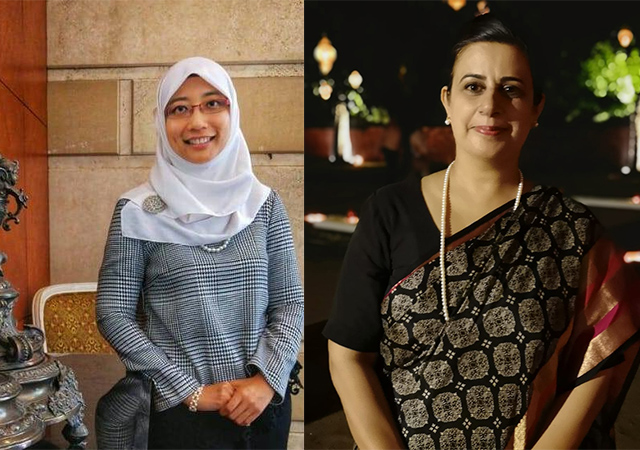 Routledge/Round Table Commonwealth Studentship award winners Nurulhuda Zakariya(l) and Sukhgeet Kaur
Routledge/Round Table Commonwealth Studentship award winners Nurulhuda Zakariya(l) and Sukhgeet Kaur
Two Routledge/Round Table Commonwealth Studentship awards are made available to PhD/DPhil students pursuing research related to the Commonwealth. They’re for graduate research in Commonwealth studies and are awarded by The Round Table, the Commonwealth Journal of International affairs, with support from its publisher, Routledge/Taylor & Francis.
Other student prize opportunities can be found at the bottom of this article.
This year’s Routledge/Round Table Commonwealth Studentship awards winners:
The winner of the 2019-20 award for a PhD student registered at a member university of the ACU outside the UK is Nurulhuda Zakariya.
Nurulhuda is a judicial officer in Malaysia by profession and currently a full-time PhD student at the University of Malaya. She graduated from International Islamic University Malaysia in August 2008 with an LLB (Hons), and, as a Chevening scholar, took an LLM in Comparative and International Dispute Resolution from Queen Mary University of London (QMUL). She also holds a Diploma in Islamic Banking and Finance Arbitration from the Chartered Institute of Arbitrators and a Certificate of Mediation from Royal Roads University.
Nurulhuda’s PhD research focuses on judicial independence within the context of the subordinate judiciary and specifically the magistracy, examining legal concepts and judicial independence principles, and their application in the Malaysian magistrates’ courts as compared with the Indian and UK magistracies.
She intends to use the Routledge/Round Table award to fund a visiting research studentship at QMUL, under the guidance of a host supervisor, Professor Kate Malleson. During this time, as well as accessing library and other materials and attending seminars and conferences, she hopes to conduct direct observation sessions in a UK magistrates’ court in order to gain a better first-hand understanding of the magisterial concept and judicial administration as developed and practised in the UK. She also hopes to conduct semi-structured interviews with relevant academics based in the UK, UK district judges, and magistrates, and set up engagement sessions with relevant agencies such as the Ministry of Justice, Courts and Tribunals Judiciary, and Judicial Appointments Commission.
The winner of the 2019-20 award for a PhD student registered at a university in the UK is Sukhgeet Kaur, currently a student in the Department of Land Economy, University of Cambridge.
Sukhgeet took a BA (Hons) and a Master’s degree in Economics from Panjab University, Chandigarh, funded by scholarships, later also winning a Dharam Hinduja ODA scholarship to complete an MPhil degree in Development Studies at the University of Cambridge. More recently she has earned an LLB degree and completed a Public Policy course at the University of California, Berkeley, sponsored by the Government of India.
A civil servant by profession, Sukhgeet belongs to Group A service of the Indian Administrative Service and Allied Services in the Government of India. She is currently posted to the National Institution for Transforming India (NITI Aayog), a premier Government of India think tank. At NITI Aayog, she has dealt with project appraisal of important ministries, industrial policy and trade strategy, and agricultural marketing and price policies. In her previous assignment at the Ministry of External Affairs, she handled India’s bilateral relations with important partners in South Asia and South-East Asia and investment trade promotion policies.
Sukhgeet was selected by the Department of Personnel and Training, Government of India, for partial funding for her PhD research at the University of Cambridge. Her research focuses on policy interventions to ameliorate the economic shocks faced by Indian farmers. Farmers in Punjab and Haryana contribute substantially to food stocks, yet face acute distress. The subject has wider significance as farmers across the Global South face vulnerability and there is an urgent need to investigate new policy interventions.
- Find out about the Peter Lyon Prize awarded for policy-based articles on a Commonwealth theme
- Information about the Harry Hodson Prize for topics on the contemporary Commonwealth
- Is it time for more rigorous analysis of the Commonwealth? – From the Round Table Journal



